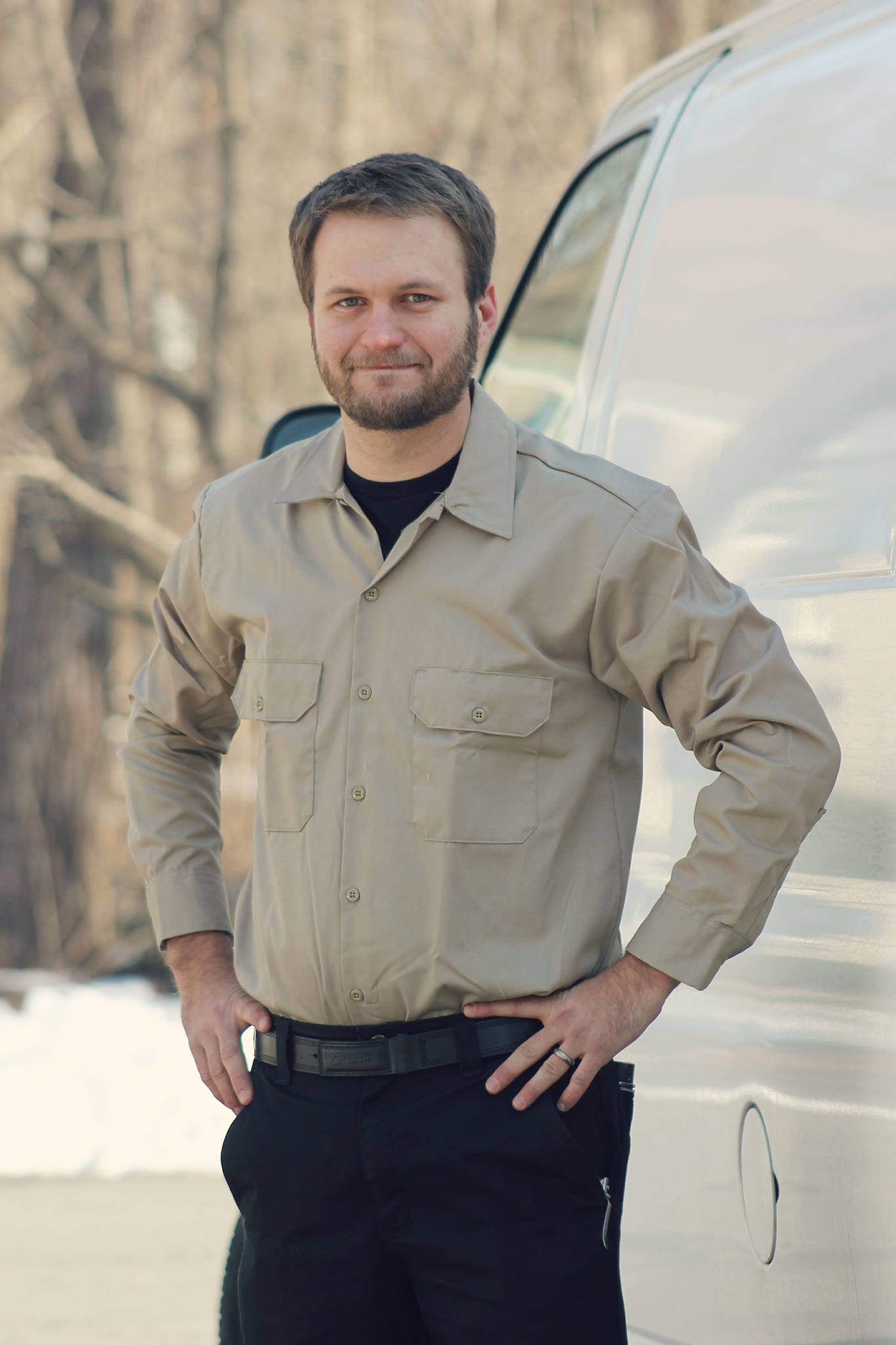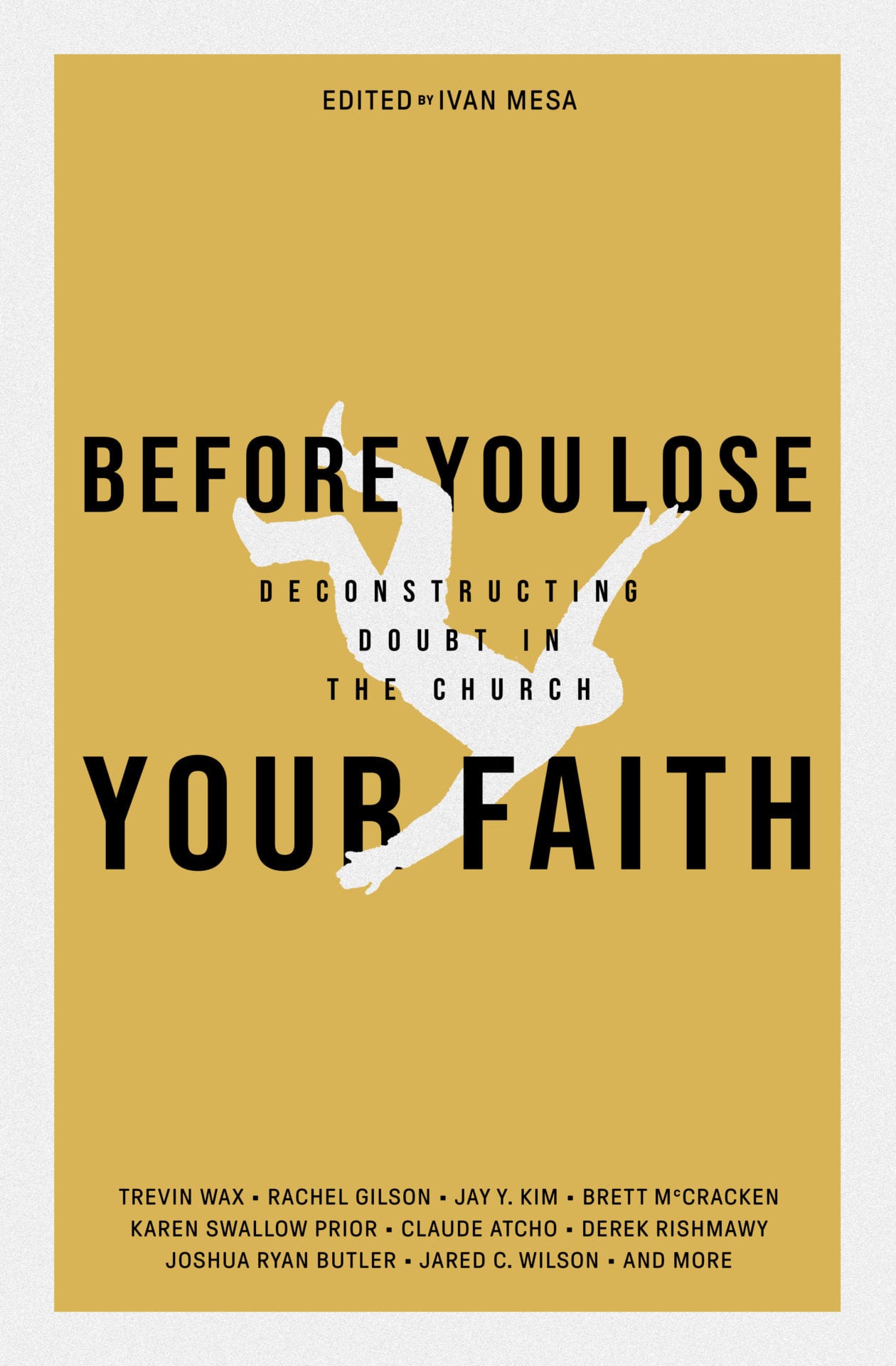Noah Gallop is an ASE-certified master automotive technician. He grew up in the West African country of Niger, where his parents served as missionaries among the Tuareg people. Noah lives in Northern Virginia with his wife, Anna, and their three children.

How do you describe your work?
I’m a mechanic, which is a lot like being a doctor: I listen, examine, diagnose and, if possible, fix. If you’ve ever had a car and taken it in to the shop, you know what I’m talking about.
As an image-bearer of God, how does your work reflect some aspect of God’s work?
There is a real beauty in what I do—restoring broken things. I begin with a car that’s in bad shape and then, at the end of the day, it’s back on the road. Looking at something that I’ve fixed and saying, “Here’s what I did today,” gives me great joy, and I think God takes pleasure in that, too. After all, he’s restoring broken things.
How does your work give you a unique vantage point into the brokenness of the world?
In my line of work, I see broken cars, but I also see broken individuals and broken motivations.
While studying at a tech school and working at various shops, I meet a lot of entry-level mechanics with problems. Some, for example, are coming out of correctional facilities and trying to acquire skills to get back into society. I’ve found that, in many ways, blue-collar America is an unreached people group.
Also, the automotive repair industry as a whole has a reputation of being dishonest. Since customers don’t really know much about cars or about what happens behind the counter, it’s easy to pass off mistakes in the shop as issues that came with the car. Moreover, most mechanics get paid by the hour, so there’s a constant pressure to do more in less time, which often means lower quality work and giving up the ability to take pride in it. And, although it’s true that giving an accurate estimate can be difficult, and sometimes jobs end up taking longer than expected, there’s also the temptation to exaggerate estimates and bill the customer more than the job is worth.
Jesus commands us to “love our neighbors as ourselves.” How does your work function as an opportunity to love and serve others?
I get to serve people by taking care of their automotive needs with love and integrity. Customer satisfaction is really pushed in American management—yet quite often to the detriment of customers. People aren't always happy even with a good job, and lots of people are happiest with places that have morally questionable sales policies. As long as I can say I have served with love to the best of my ability, that’s enough for me, even if this may not always be recognized.
Editors’ note: TGCvocations is a weekly column that asks practitioners how they integrate their faith and their work. Interviews are condensed and edited.
Free Book by TGC: ‘Before You Lose Your Faith’
 Many young people are walking away from Christianity—for reasons ranging from the church’s stance on sexual morality, to its approach to science and the Bible, to its perceived silence on racial justice.
Many young people are walking away from Christianity—for reasons ranging from the church’s stance on sexual morality, to its approach to science and the Bible, to its perceived silence on racial justice.
TGC’s book Before You Lose Your Faith: Deconstructing Doubt in the Church is an infusion of hope, clarity, and wisdom in an age of mounting cynicism toward Christianity.
For anyone entering college or the workplace and looking for a timely reminder of why Christianity is good news in a skeptical age, make sure to get your FREE ebook Before You Lose Your Faith today!


































